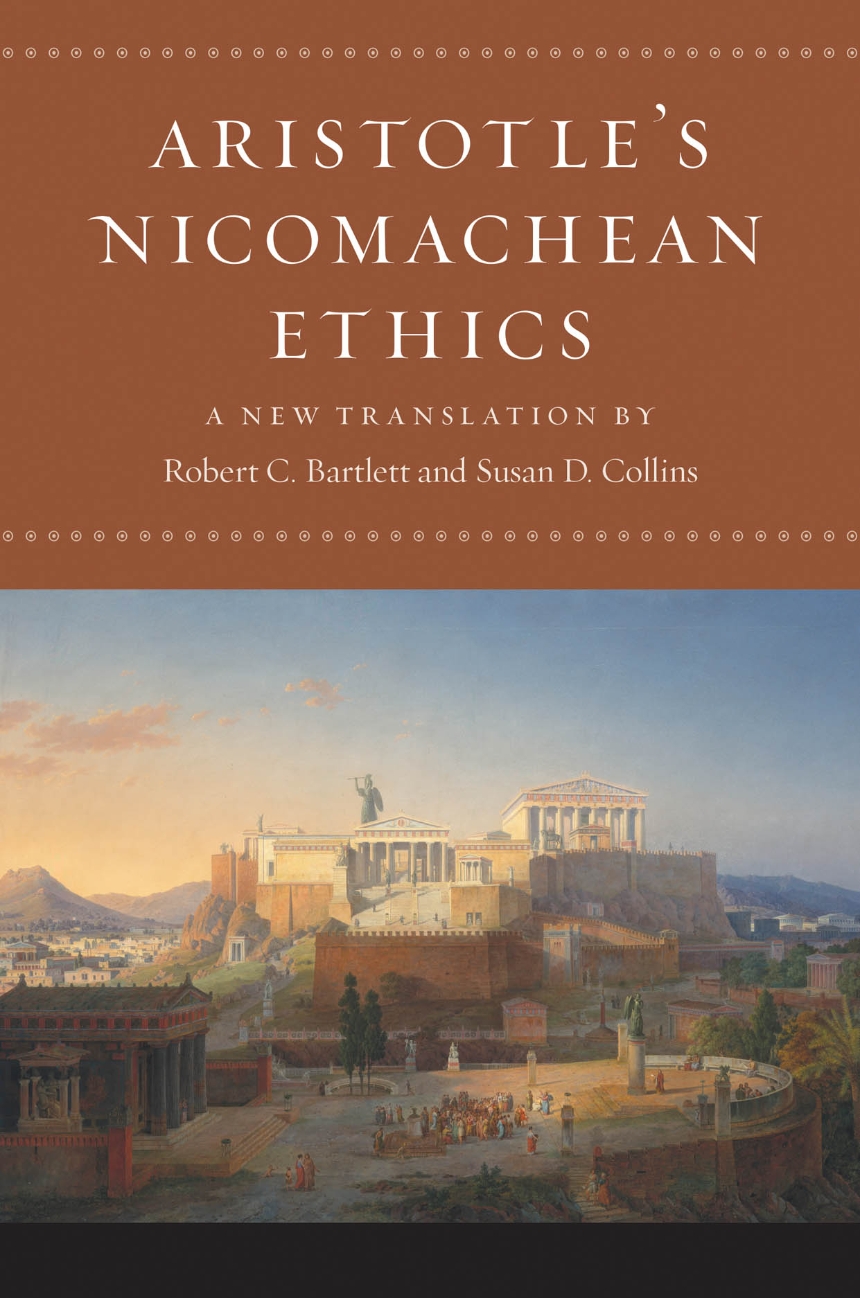Aristotle’s Nicomachean Ethics
The most precise and authoritative translation of one of the founding works of Western culture, in an edition supported by helpful, effective notes
The Nicomachean Ethics is one of Aristotle’s most widely read and influential works. Ideas central to ethics—that happiness is the end of human endeavor, that moral virtue is formed through action and habituation, and that good action requires prudence—found their most powerful proponent in the person medieval scholars simply called “the Philosopher.” Drawing on their intimate knowledge of Aristotle’s thought, Robert C. Bartlett and Susan D. Collins have produced here an English-language translation of the Ethics that is as remarkably faithful to the original as it is graceful in its rendering.
Aristotle is well known for the precision with which he chooses his words, and in this elegant translation his work has found its ideal match. Bartlett and Collins provide copious notes and a glossary providing context and further explanation for students, as well as an introduction and a substantial interpretive essay that sketch central arguments of the work and the seminal place of Aristotle’s Ethics in his political philosophy as a whole.
The Nicomachean Ethics has engaged the serious interest of readers across centuries and civilizations—of peoples ancient, medieval, and modern; pagan, Christian, Muslim, and Jewish—and this new edition will take its place as the standard English-language translation.
368 pages | 6 x 9 | © 2011
Philosophy: History and Classic Works
Political Science: Classic Political Thought
Reviews
Table of Contents
Introduction
A Note on the Translation
Bibliography
Outline of the Nicomachean Ethics
Nicomachean Ethics
Book 1
Book 2
Book 3
Book 4
Book 5
Book 6
Book 7
Book 8
Book 9
Book 10
Interpretive Essay
Overview of the Moral Virtues and Vices
Glossary: English-Greek
Key Greek Terms
Index of Proper Names
General Index
